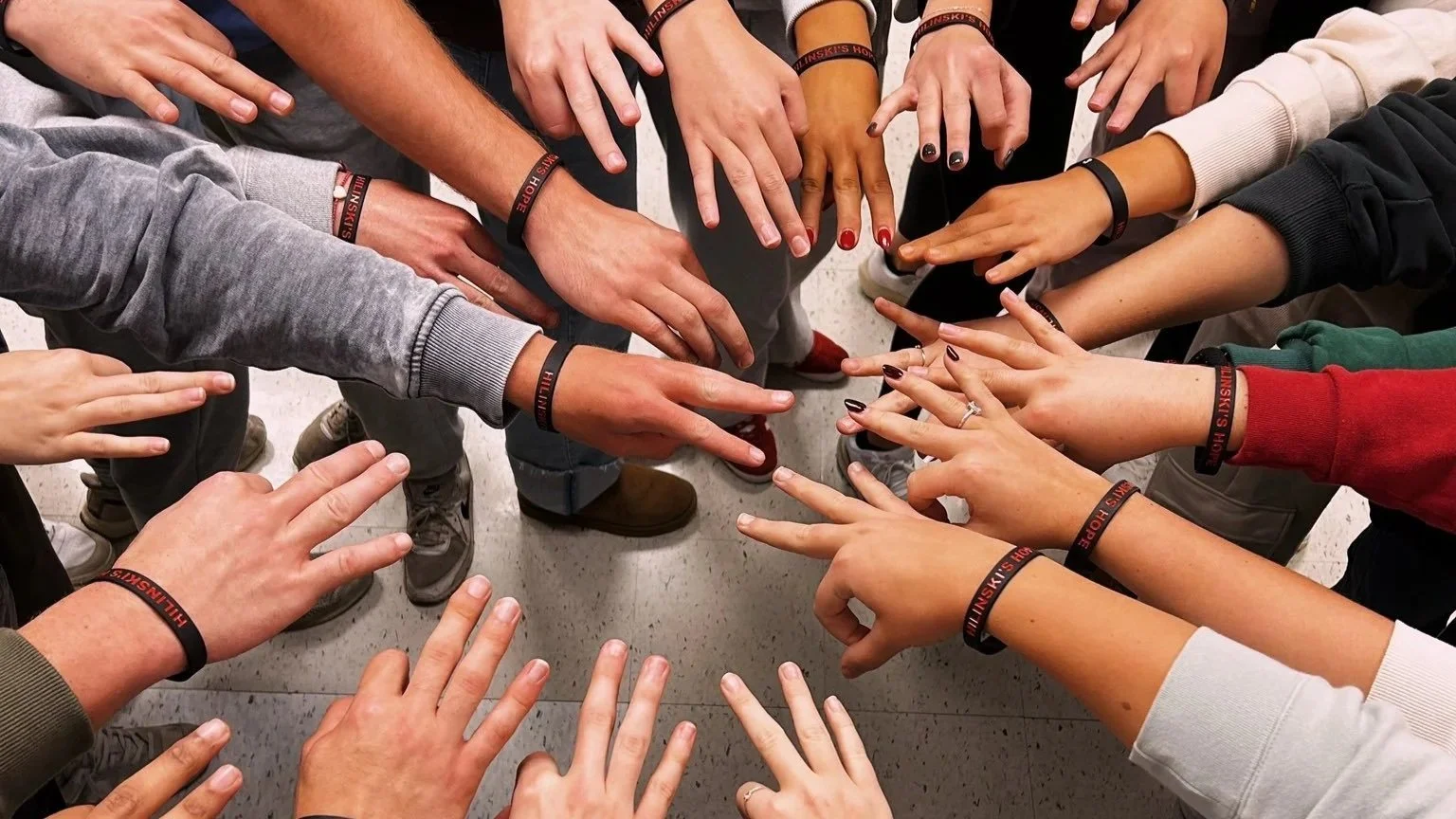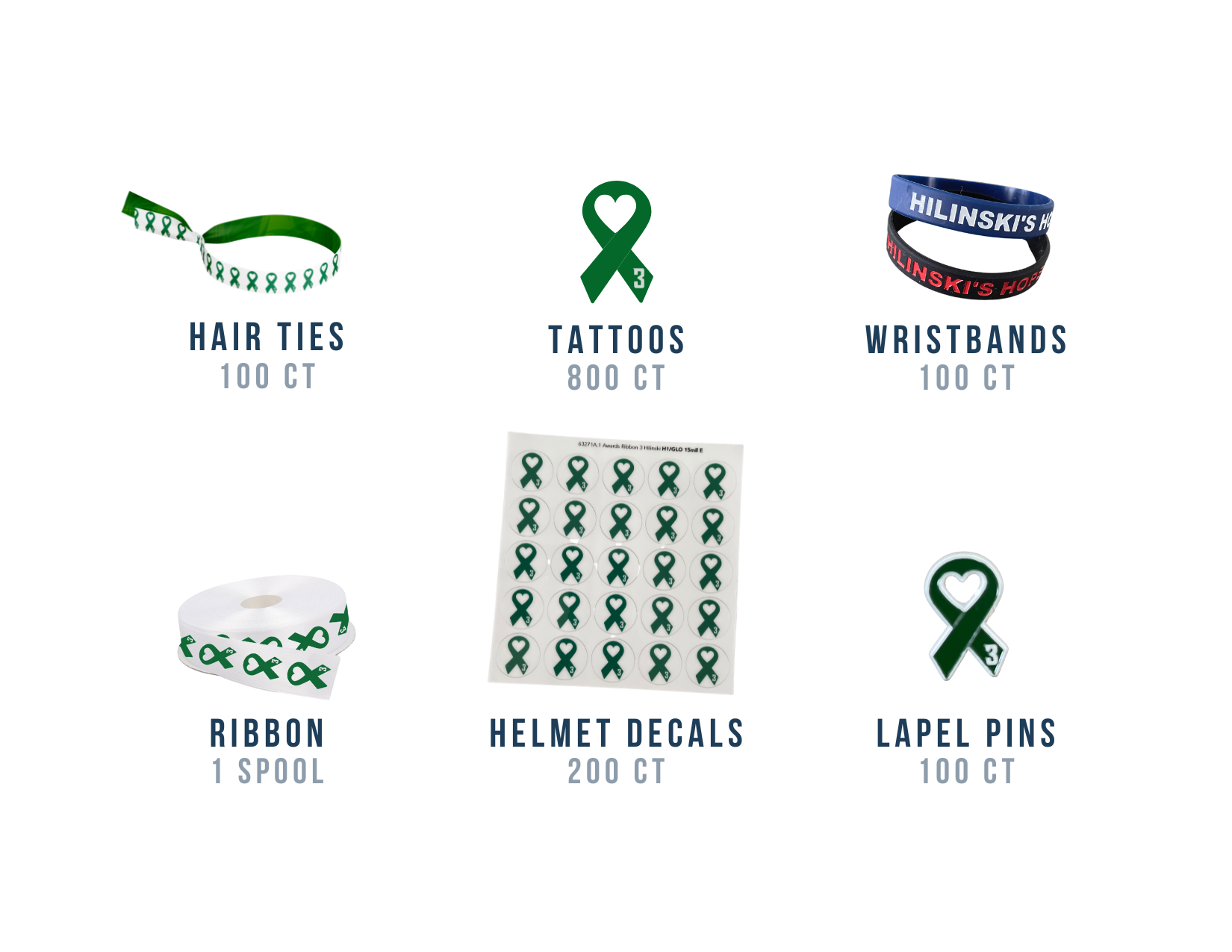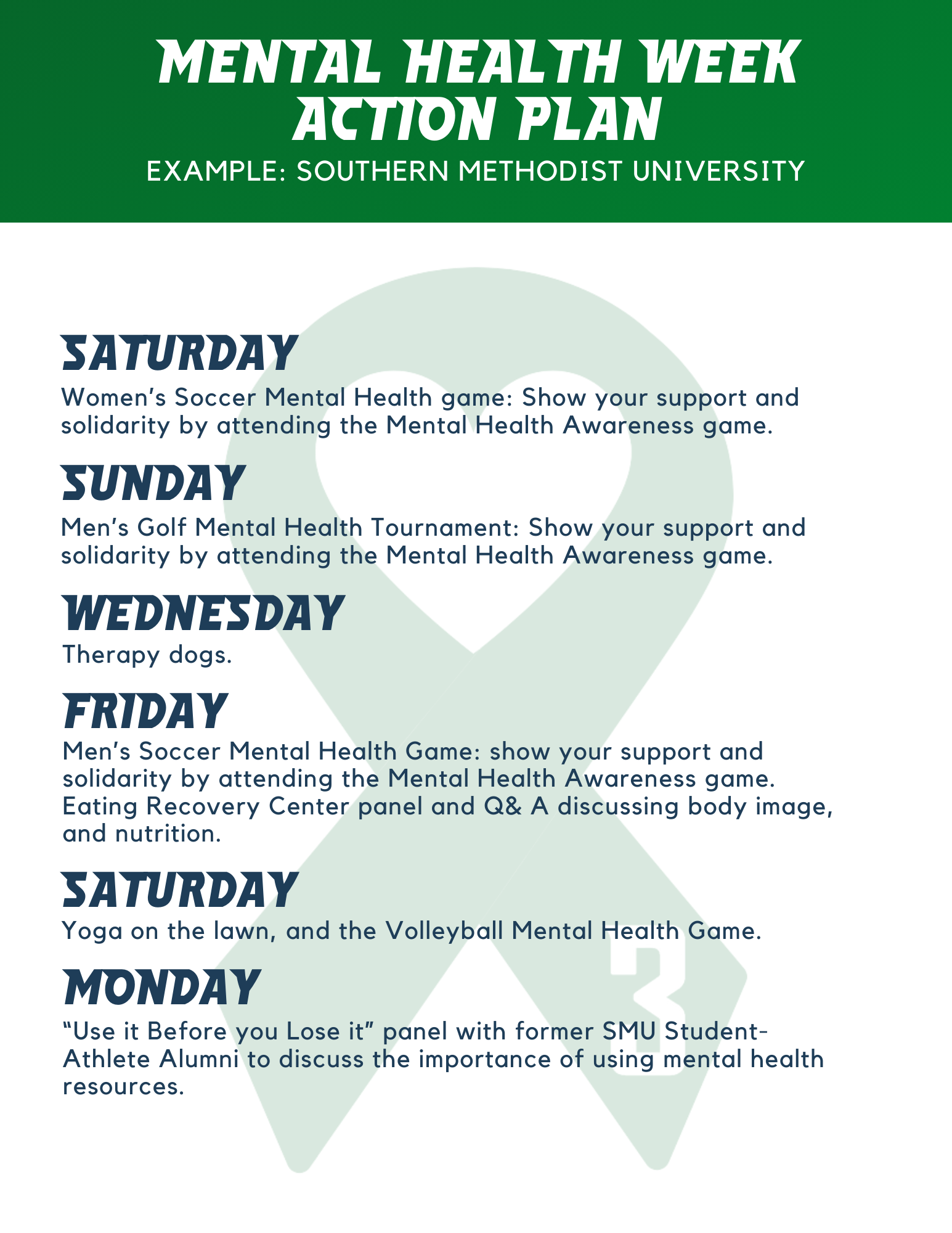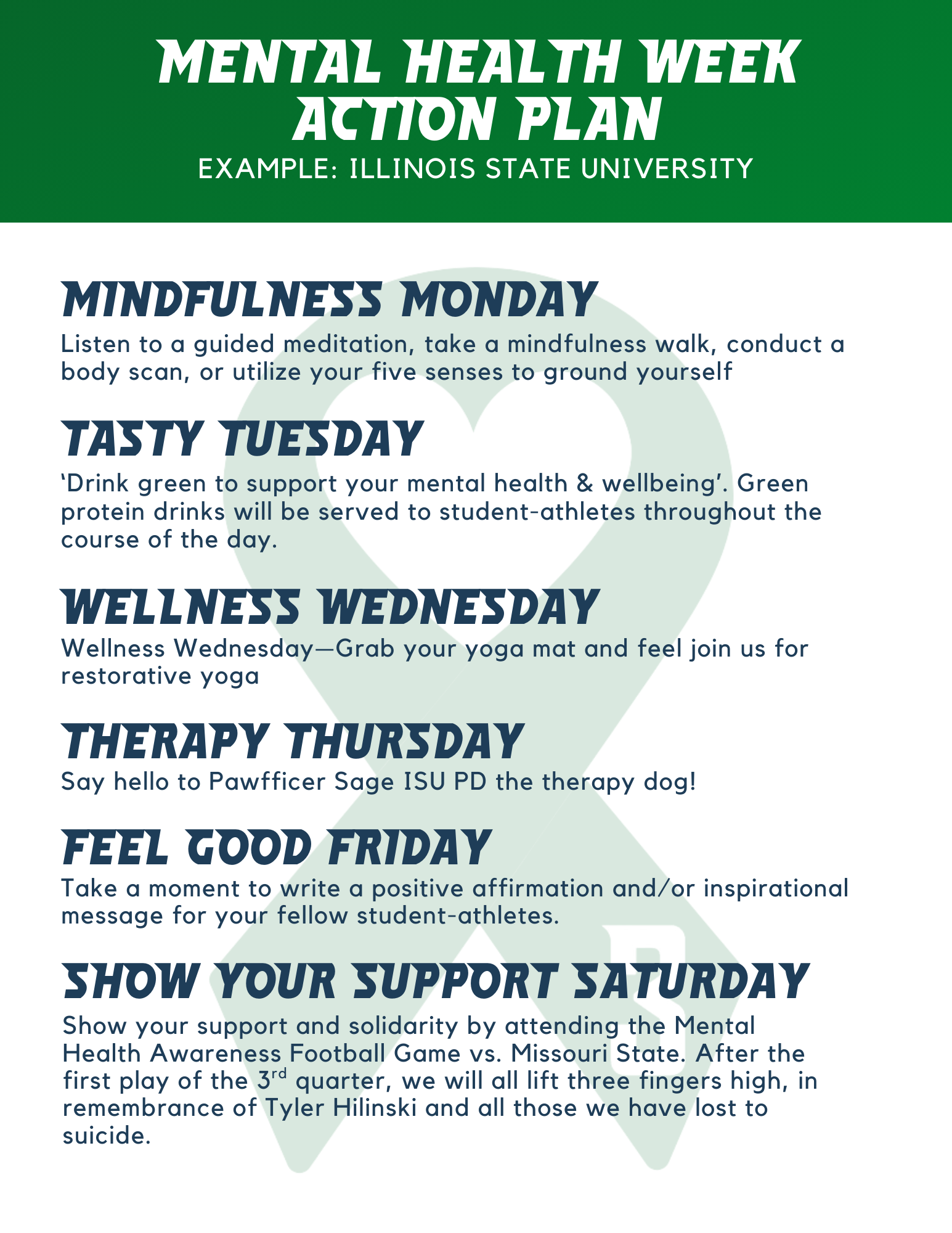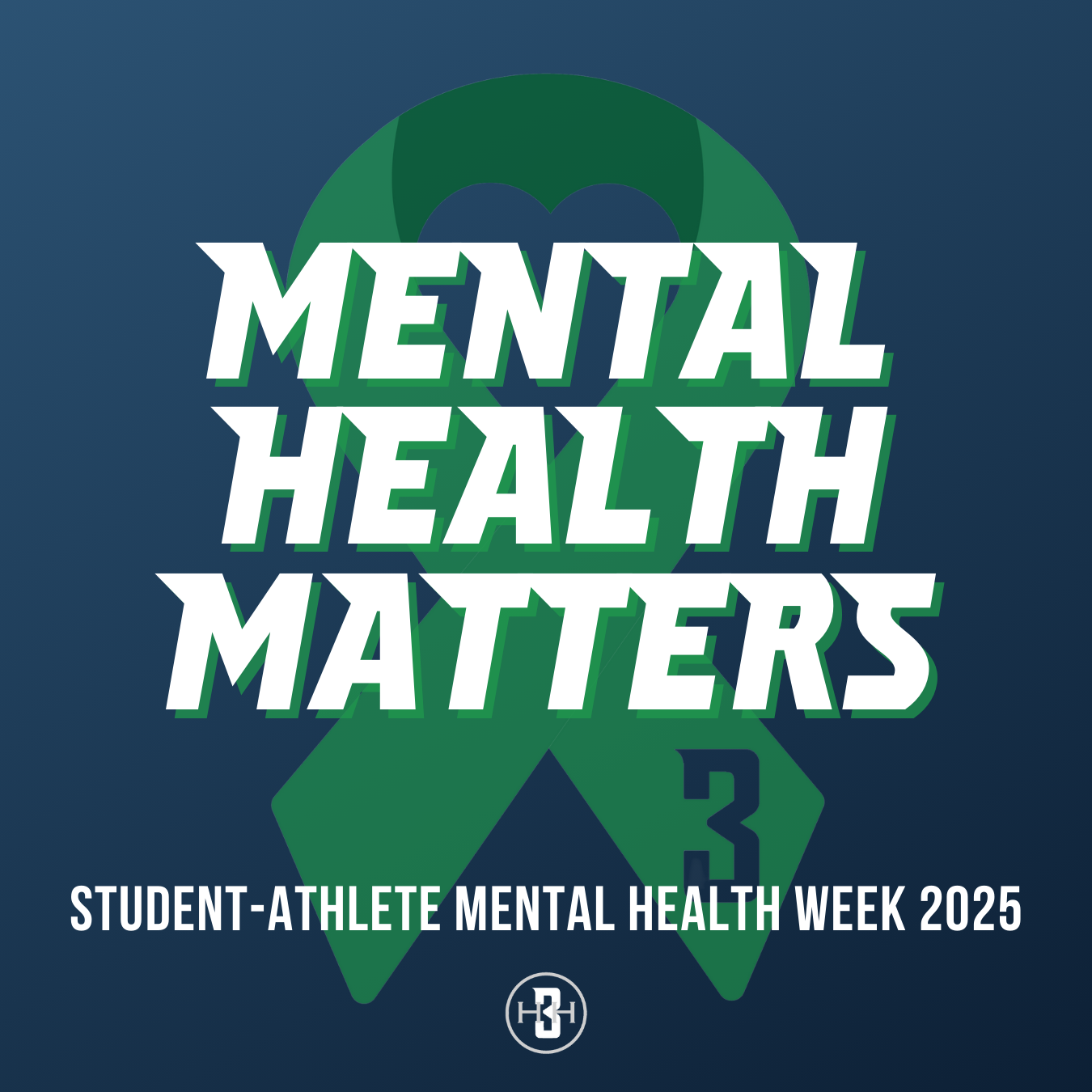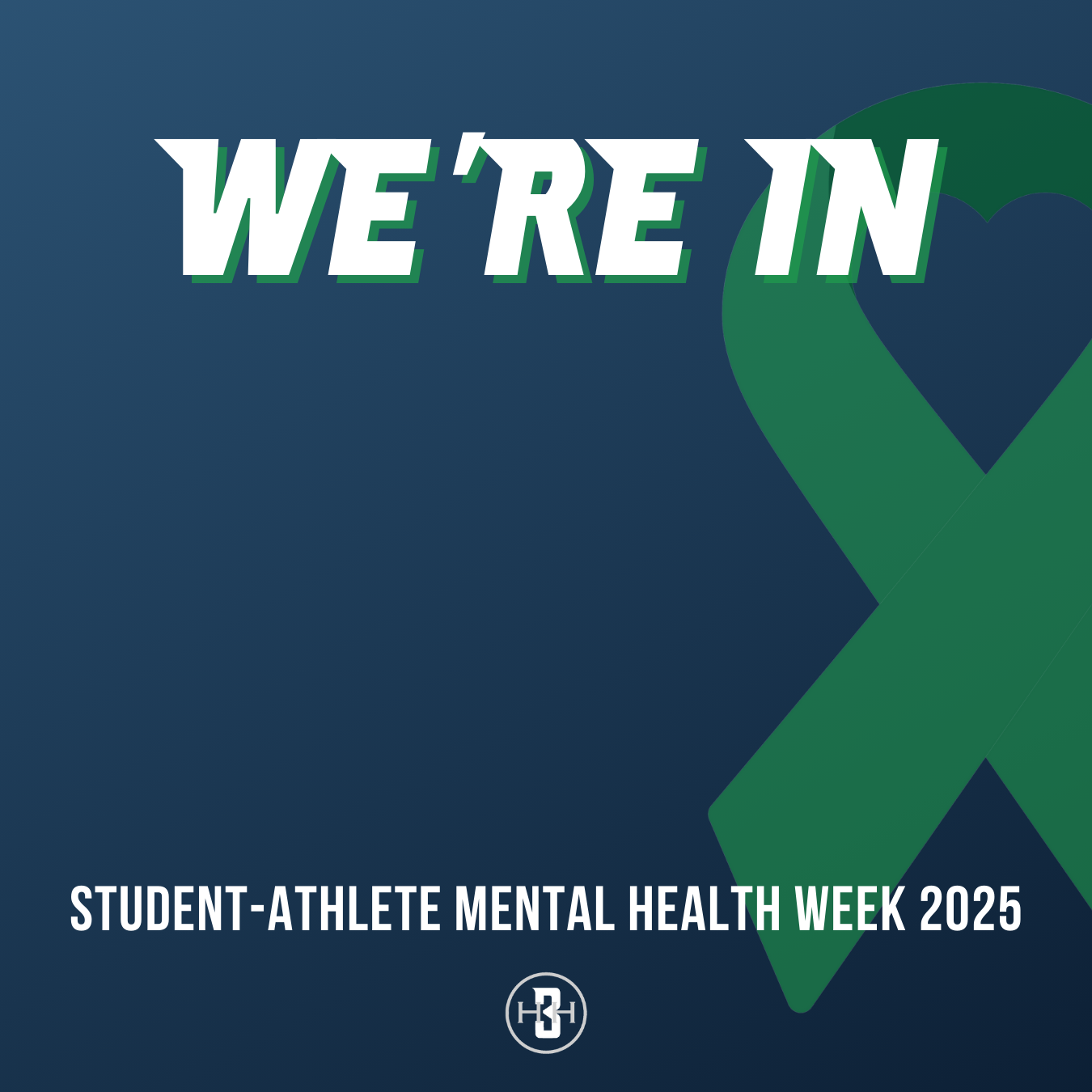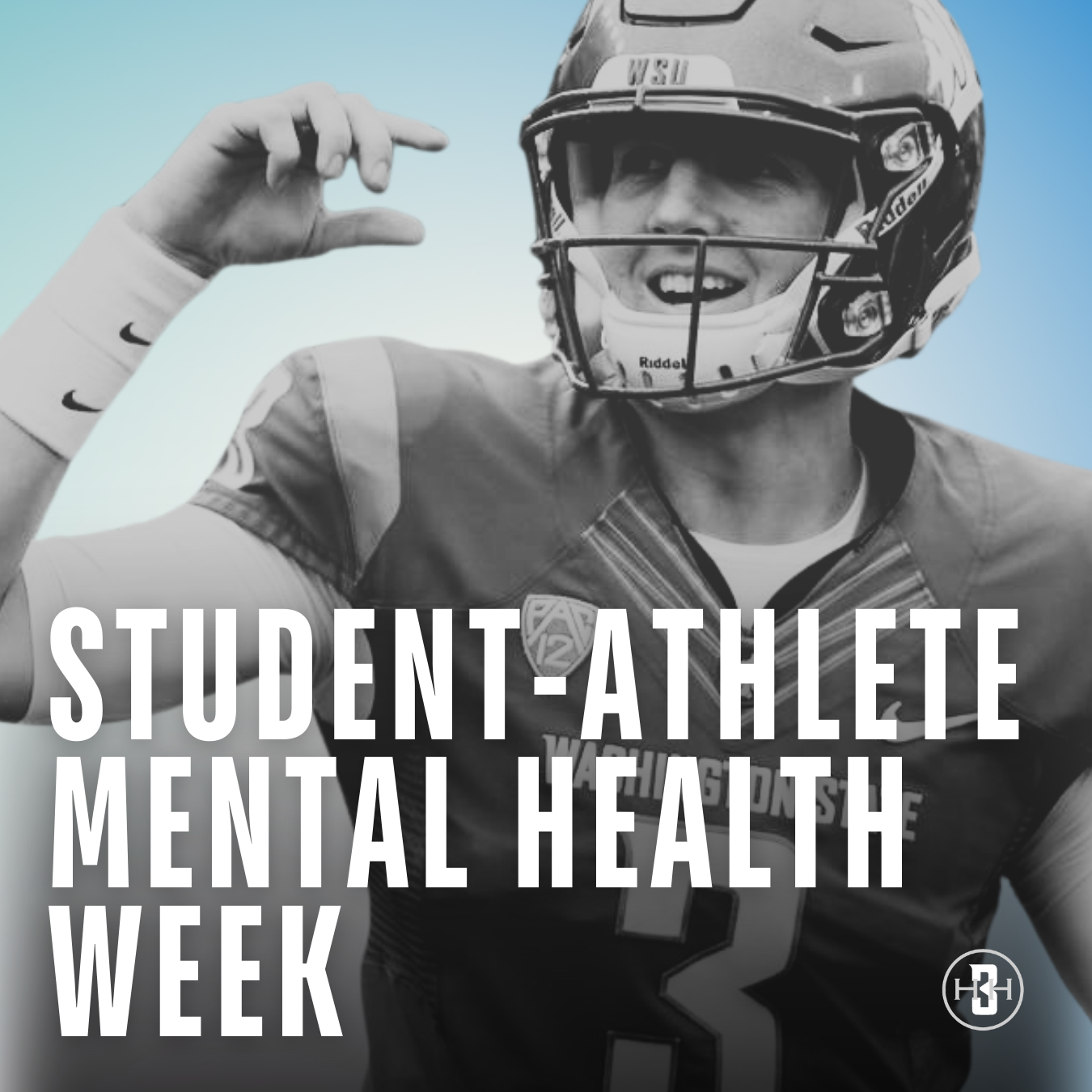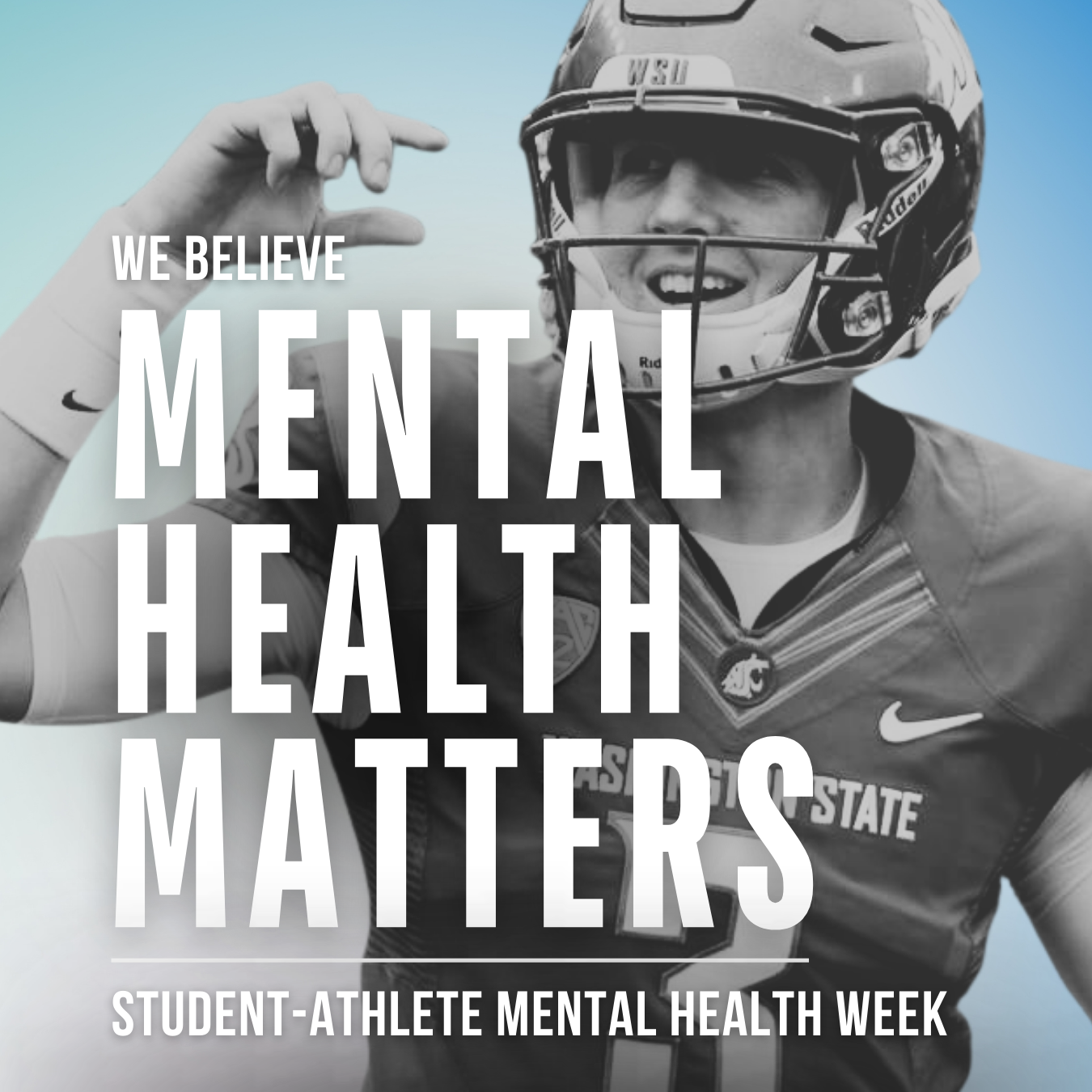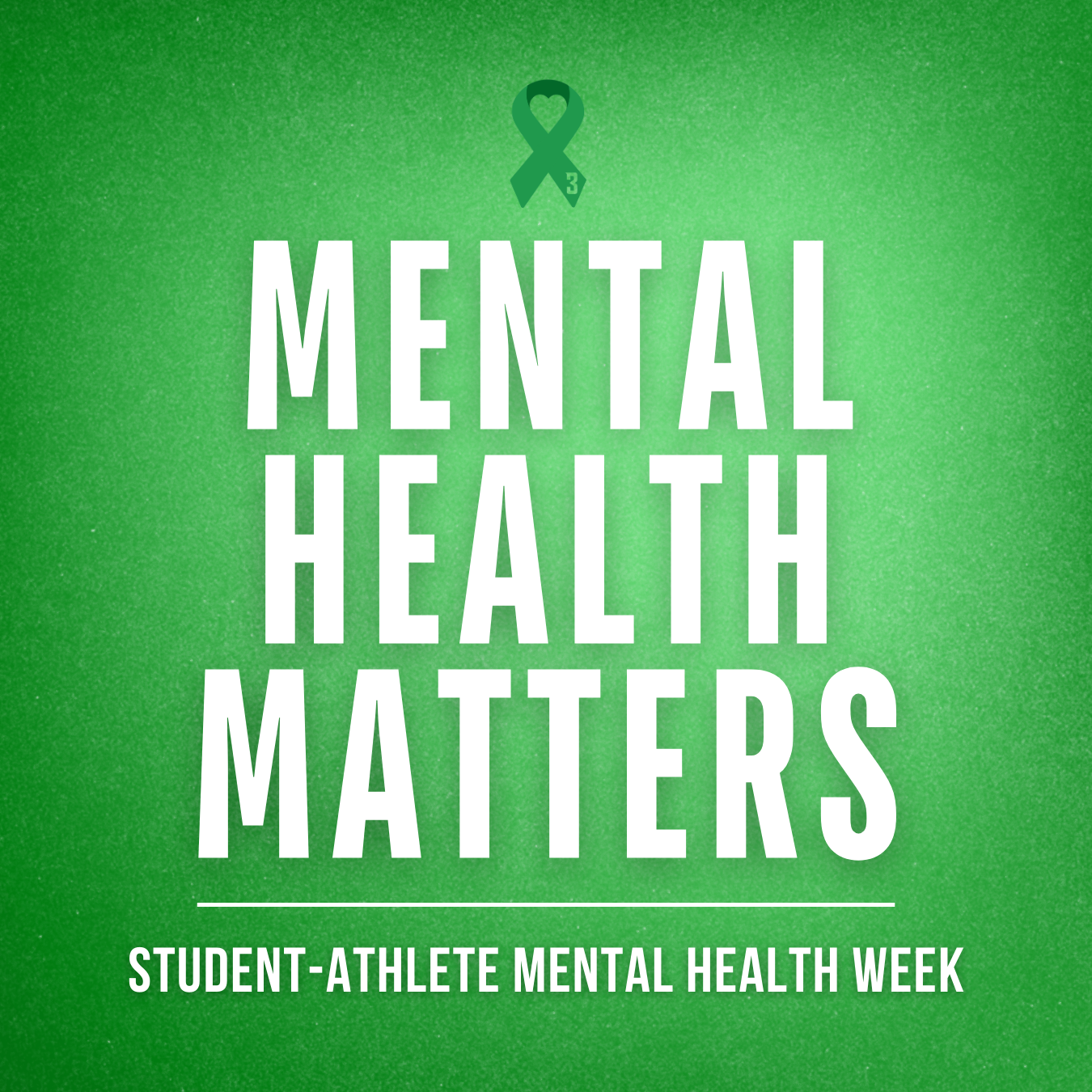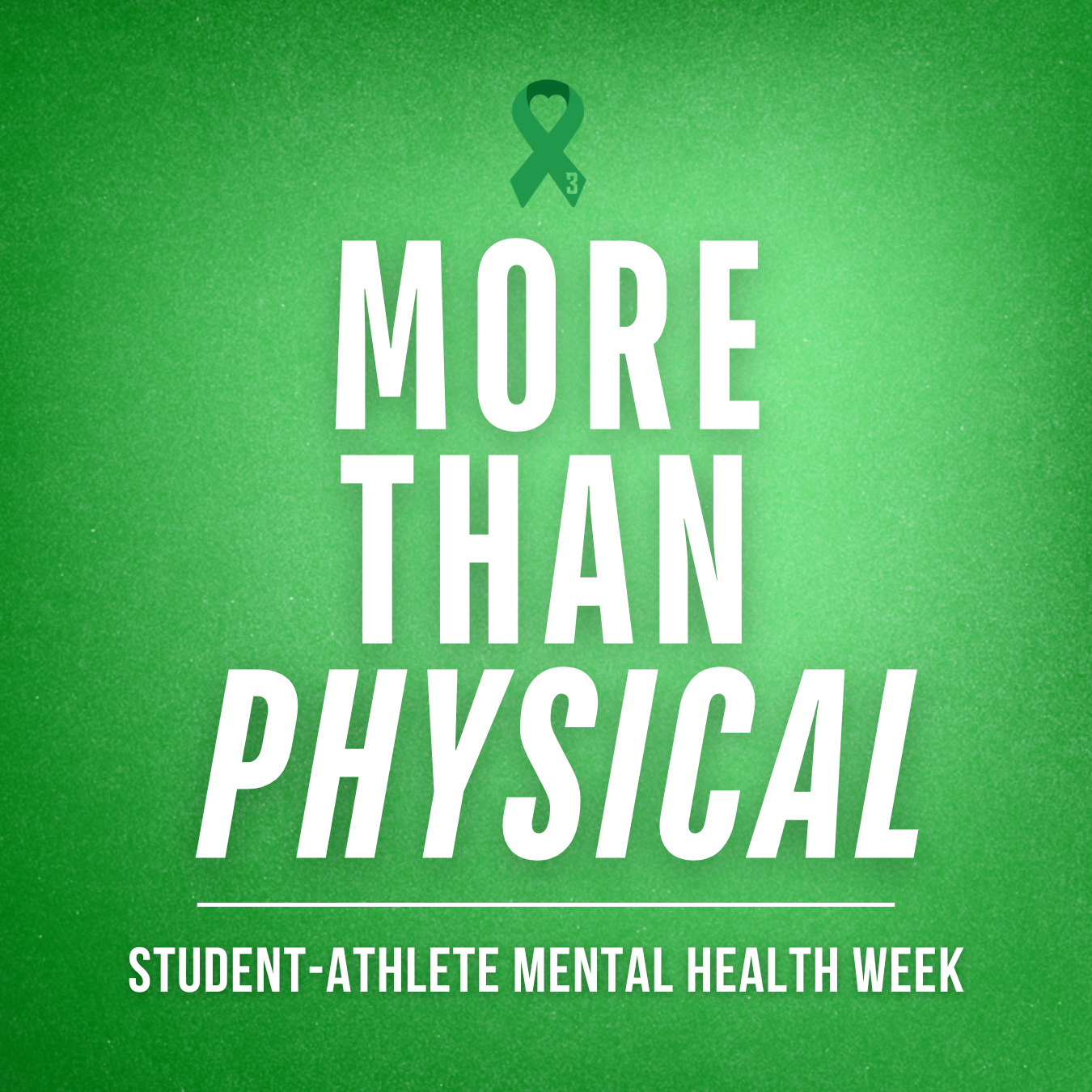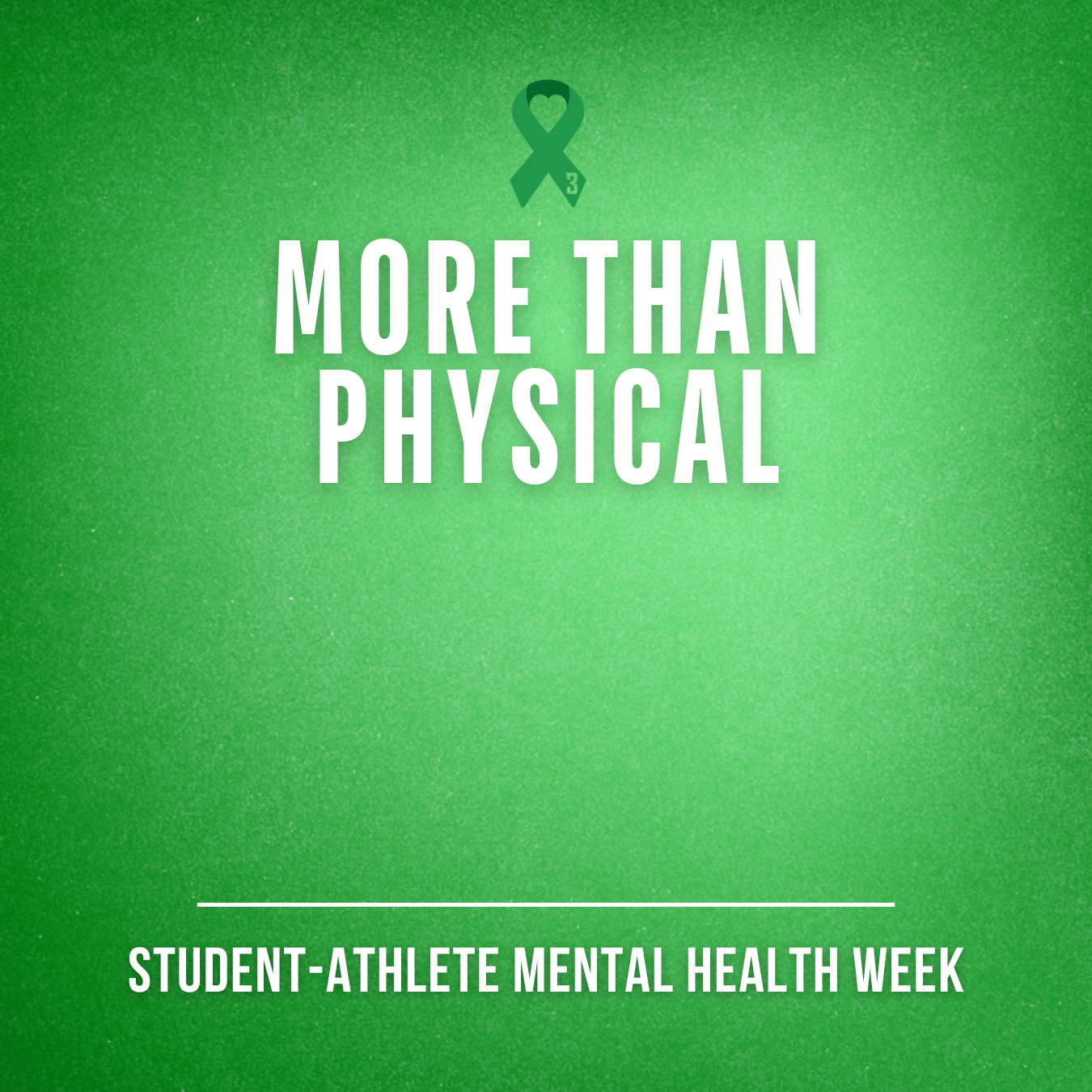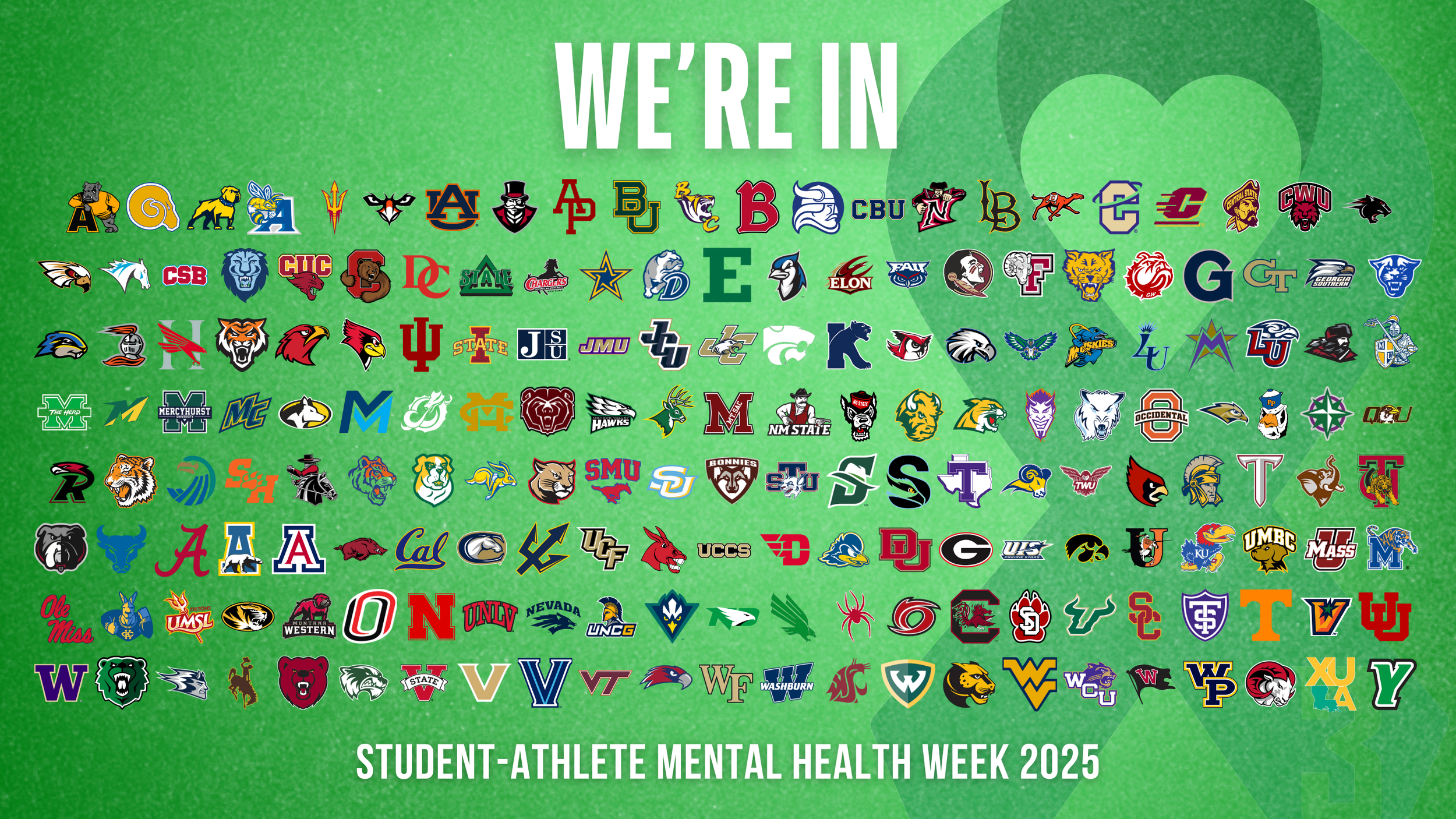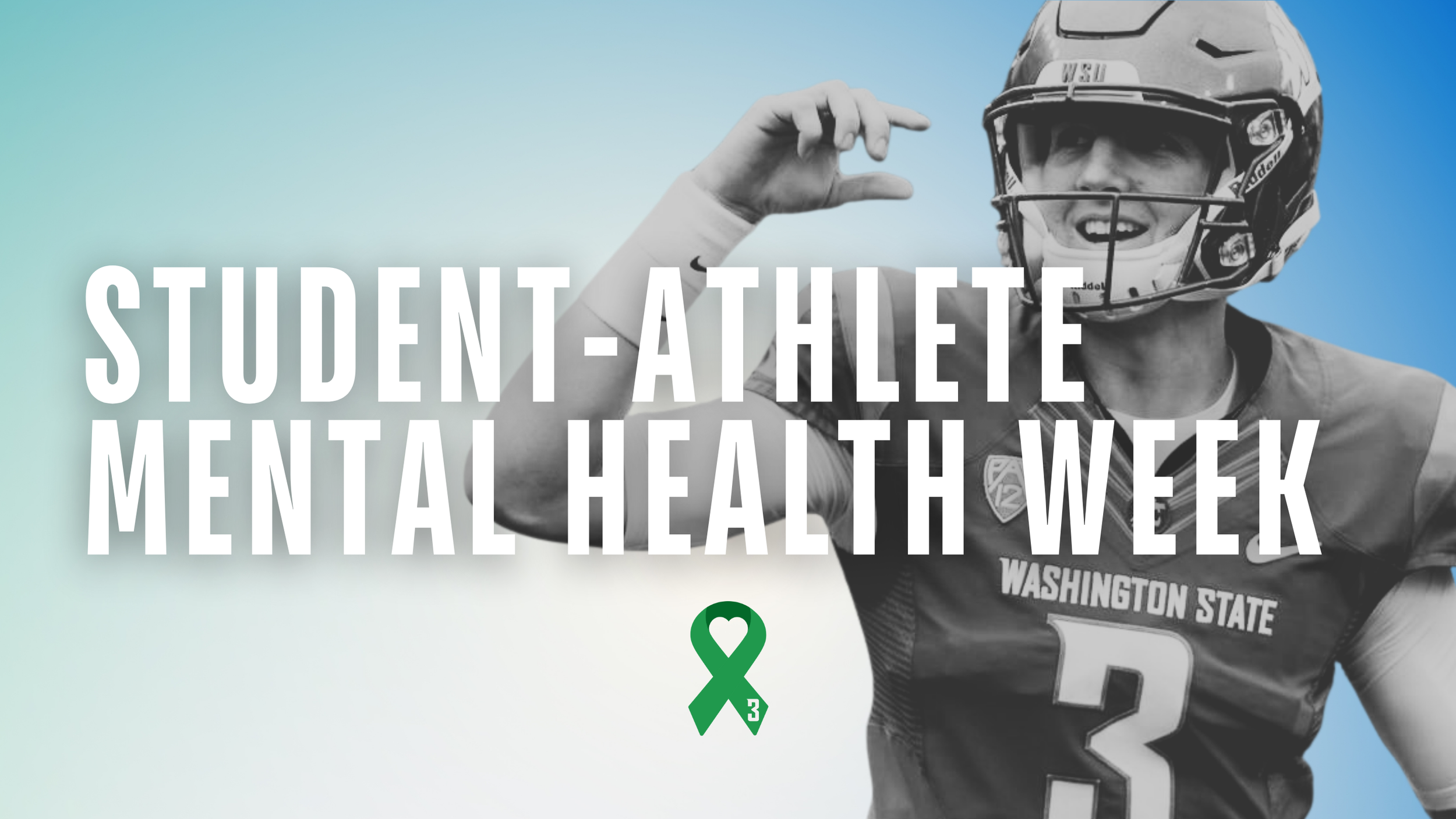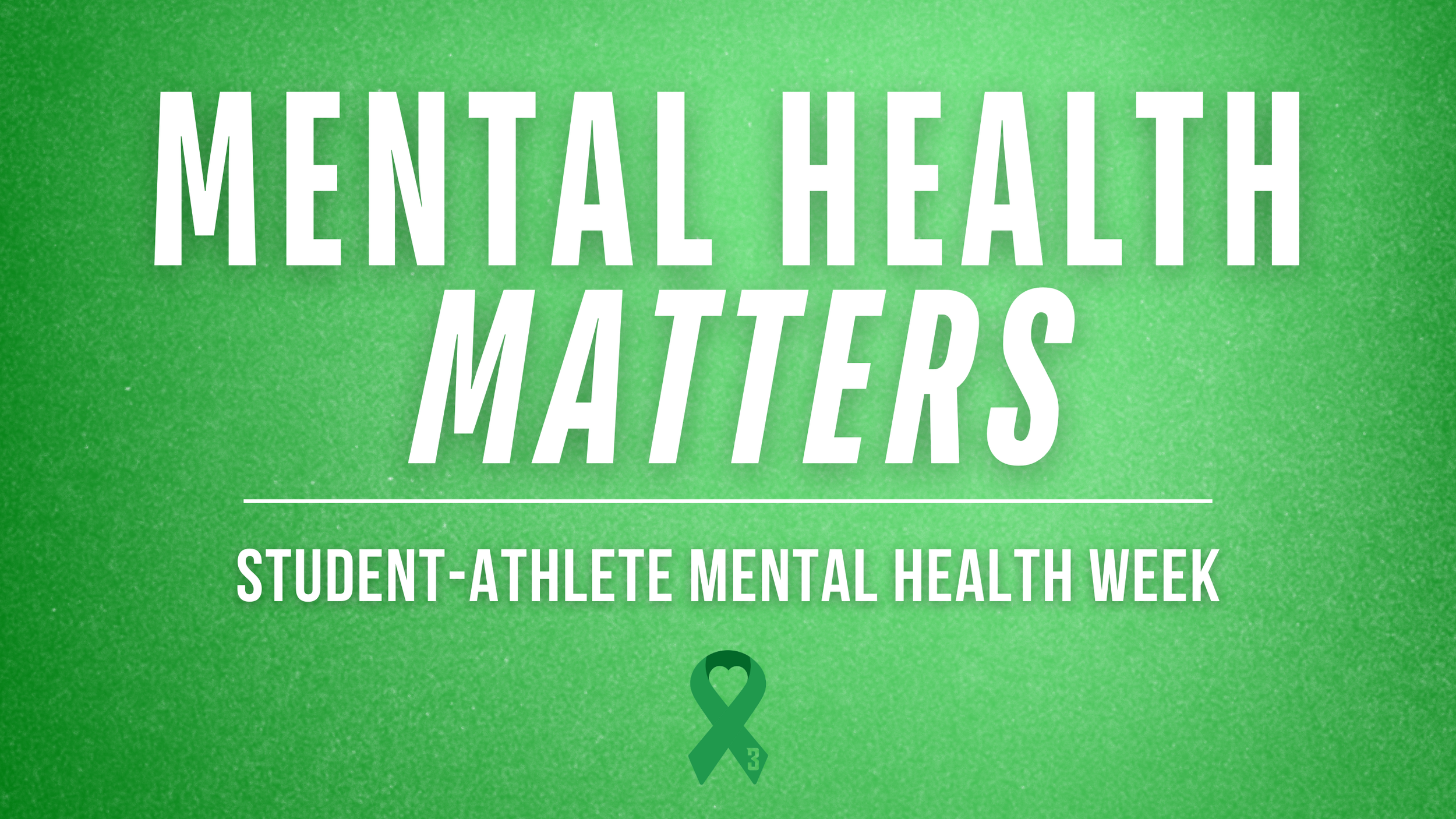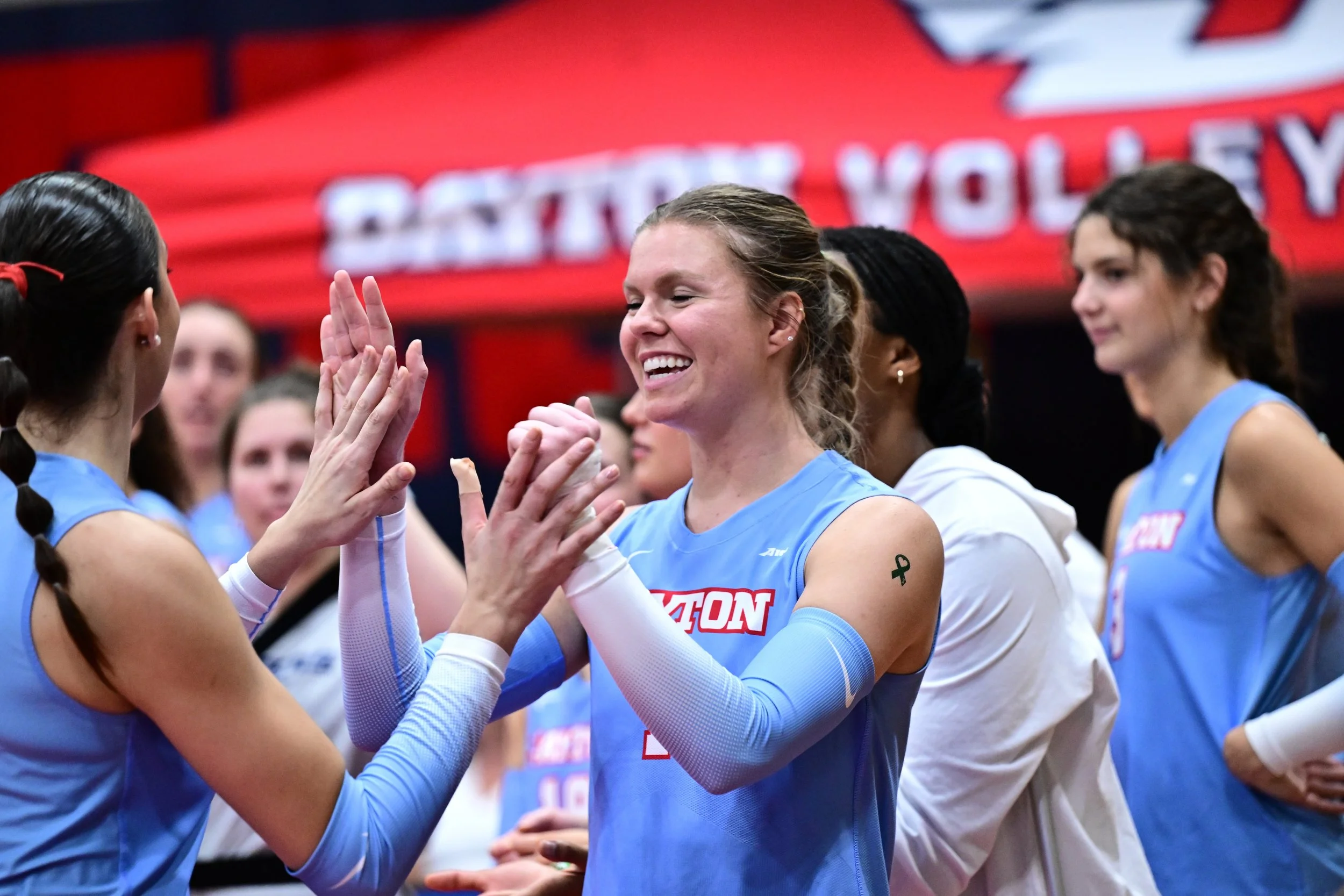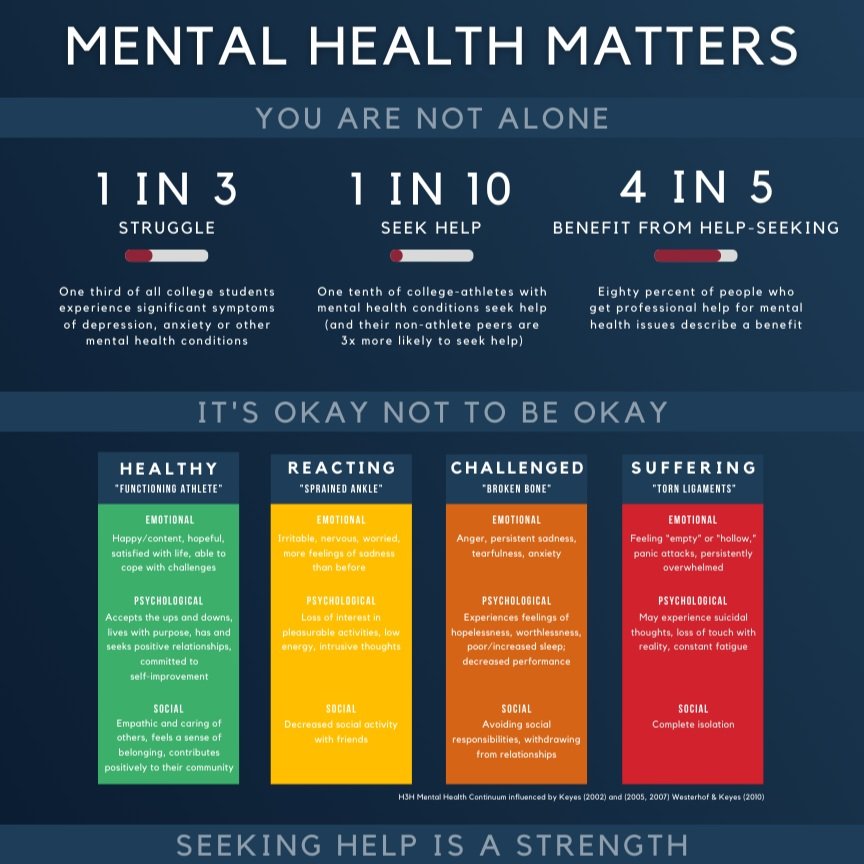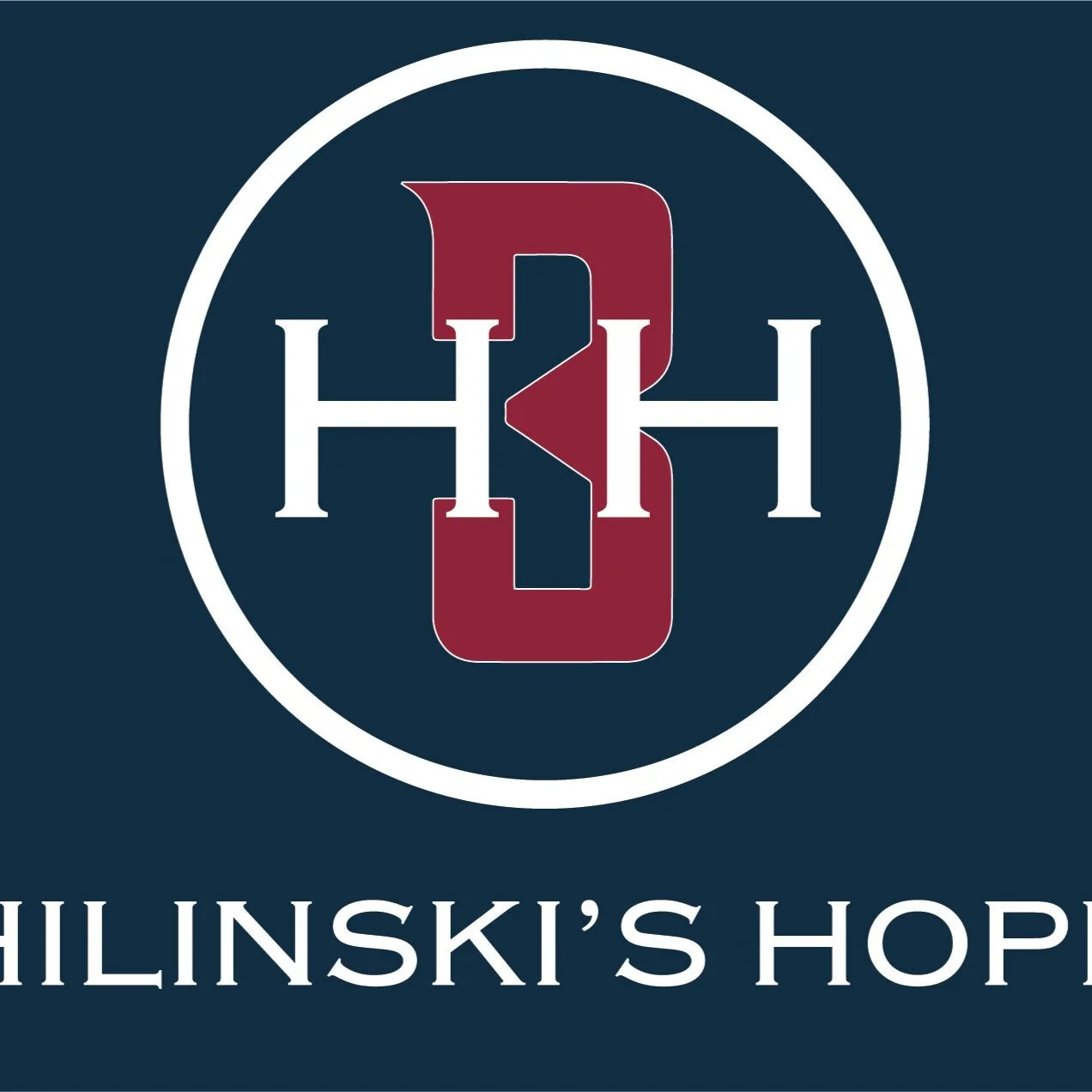
SAMHW Digital Toolkit

Student-Athlete Mental Health Week is October 4-11, 2025
This year we have 180+ colleges and universities joining our mission by utilizing green ribbon materials, playing our mental health PSA during their game, and/or prioritizing a mental health campus engagement strategy. The goal of this week is to raise mental health awareness, destigmatize mental illness, and provide quality resources to student-athletes nationwide.
Thank you for being part of the movement.
Skip to a section
Your boxes have shipped!
If you filled out our sign up form and gave us an address, your boxes have shipped out! Look out for an email from our distributor, College Hill Threads, with your tracking number.
Feel free to snap a picture or video when you receive your box and tag us @hilinskishope!
What’s in our box?
Questions about your box? Reach out to Chloé Smith at chloe@hilinskishope.org.
Mental Health Week Action Plans
If you’ve created an action plan for Mental Health Week, please share it with us! Below, you can find a few examples of action plans from 2024 (click to enlarge).
Mental Health Week Graphics
Add your own logo!
Add your own logo!
Add your own logo!
Mental Health Week Sample Posts
Student-Athlete Mental Health Week is HERE! From Oct 4–11, we’re teaming up with @HilinskisHope and over 180 universities nationwide to shine a spotlight on mental health in athletics. We're breaking the stigma, starting real conversations, and making sure every student-athlete knows: #YouAreNotAlone. Let’s rally together to show the world that #MentalHealthMatters — on and off the field. 💚💚💚
We’re kicking off Student-Athlete Mental Health Week! This week, we’re teaming up with @HilinskisHope and 180+ universities to break the stigma and support student-athletes everywhere. This week, we honor Tyler Hilinski and all those we've lost — and stand for a future of hope, openness, and support. Your #MentalHealthMatters, and #YouAreNotAlone
We’re proud to stand with @HilinskisHope for Student-Athlete Mental Health Week! This week is a powerful call to action: to raise awareness, break the stigma, and make sure every student-athlete knows it’s okay to ask for help. Because #MentalHealthMatters — on and off the field. #YouAreNotAlone 💚💚💚
Sports are mental, too. That’s why we’re joining @HilinskisHope and 180+ universities for Student-Athlete Mental Health Week — to make mental health a priority and support the whole athlete. Because success isn’t just physical — and #MentalHealthMatters. #YouAreNotAlone

Mental Health PSA Video
to introduce the PSA video at the end of halftime:
3 in the 3rd Script sample script
Hilinski’s Hope Foundation was founded in 2018 by Mark and Kym Hilinski to honor the life of their son Tyler Hilinski — a Washington State quarterback who wore #3 and died by suicide, despite showing no visible signs of struggle.
Today, after the first play of the third quarter, we invite you to raise three fingers high — in memory of Tyler and all those we’ve lost to suicide.
To anyone who may be struggling: you are not alone, and you don’t have to suffer in silence.
We look ahead with hope — toward a future free from stigma — because we all have mental health, and mental health matters.
Talking Points: Student-Athlete Mental Health
Student-athletes experience multifaceted and simultaneous stressors including academics, sports, personal and social lives, social media, and now Name, Image and Likeness (NIL) agreements. These increased stressors make them more susceptible to developing mental health issues such as anxiety and depression. (2 Florida Ent. & Sports L. Rev. 151)
Literature shows that student-athletes have a 71% likelihood of dropping out during their first year of college compared to non-athletes. (Journal of Issues in Intercollegiate Athletics)
Studies find that as many as 23.7% of college athletes experience depressive symptoms that reach clinically relevant levels, and 6.3% have moderate to severe depression. Even serious high school athletes have been found to struggle with their mental health. (NAMI)
33% of all college students experience significant symptoms of depression, anxiety or other mental health conditions. Among that group, 30% seek help. But of college athletes with mental health conditions, only 10% do. (Athletes for Hope)
The number of student-athletes reporting mental health concerns is 1.5 -2x higher than before the COVID-19 pandemic. In January 2023, the NCAA Coach Well-Being Study reported 40% of head coaches felt mentally exhausted on a near-constant basis. (NCAA)
Two-thirds of student-athletes indicated knowing where to go on campus for mental health concerns, and a majority (56%) reported knowing how to help a teammate experiencing a mental health issue. However, fewer than half (47%) felt they would be comfortable personally seeking support from a mental health provider on campus. Sixty-three percent of student-athletes felt their teammates take mental health concerns of fellow teammates seriously, and a slightly lower percentage (53%) reported that coaches take mental health concerns of their student-athletes seriously. Half of student-athletes believe that mental health is a priority to their athletics department. (NCAA)
Talking Points: Hilinski’s Hope Foundation
From October 4-11, Hilinski’s Hope is hosting Student-Athlete Mental Health Week, curating a collective week of action focused on eliminating stigma and increasing mental health resources for universities and colleges.
The Hilinski’s Hope Foundation was founded in 2018 by Mark and Kym Hilinski to honor the life of their son Tyler, who died by suicide yet never showed any signs of depression or struggle. Hilinski’s Hope helps colleges and universities change and save lives, eliminate stigma, and scale mental wellness programs for student-athletes by sharing Tyler’s story, connecting students with mental health resources, and assisting universities to institutionalize best practices.
Mark and Kym Hilinski have spoken at 350+ Universities and Mental Health Conferences, was named one of the biggest power brokers in college football by ESPN in 2022, was the official National Charity Recipient for the NCAA Final Four in 2021, won the 2020 Stuart Scott ENSPIRE Award, presented at the ESPY's, and received a Sports Emmy in 2020 for best Short Sports Documentary.
Hilinski’s Hope has worked with Prevention Strategies to develop mental health programs such as Game Plan and their Online Mental Health Course. These programs work to reduce stigma, build confidence in seeking treatment, teach students how to advocate for others, and assist universities in applying best mental health practices — and have been rolled out by universities nationwide.
Questions? Contact our Program and Communications Director, Chloé Smith at chloe@hilinskishope.org.

